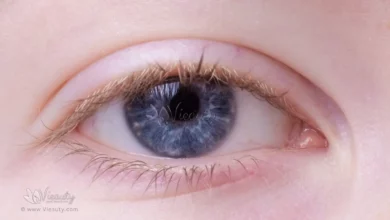8 Natural Home Remedies for Preventing and Treating Migraines
Migraines are a debilitating condition that affects millions of people worldwide. They can cause intense pain, sensitivity to light and sound, and even nausea and vomiting. While prescription medications can help alleviate the symptoms of migraines, they can also come with harmful side effects. Fortunately, there are many natural remedies for preventing and treating Migraines.
In this post, we will explore 8 natural home remedies to help you manage and alleviate the symptoms of migraines. From dietary changes and aromatherapy to stress management techniques and acupressure, we’ve got you covered with a range of natural solutions to help you find relief from migraines. Not only are these remedies effective, they are also safe and free from harmful side effects, so you can feel good about taking control of your health and wellness.
What is a Migraine?

Migraines are a type of headache that can cause intense pain, pulsing and throbbing sensations, as well as sensitivity to light and sound. They can last for hours or even days and can be debilitating, affecting a person’s ability to carry out everyday activities.
Migraines are believed to be caused by changes in the brain and can be triggered by a range of factors including stress, hormonal changes, diet, and environmental factors. While there is no cure for migraines, there are a number of natural remedies that can help prevent and treat them.
It is important to note that if you experience migraines frequently, or they are severe, you should consult with a healthcare professional to determine the best course of treatment for you. However, for those who experience infrequent or mild migraines, natural remedies can be a great alternative to medication. In this post, we will explore eight natural home remedies for preventing and treating migraines.
Common Migraine Triggers
Migraines can be caused by a variety of factors, and identifying your personal migraine triggers can be a helpful tool in preventing and treating migraines. Some of the most common migraine triggers include stress, hormonal changes, certain foods, and changes in sleep patterns.
Stress is a well-known migraine trigger, and it’s important to identify and avoid stressors whenever possible. Implementing stress-reducing techniques such as yoga or meditation can also be helpful in preventing migraines.
Hormonal changes, particularly in women, are another common trigger. Women may experience migraines during their menstrual cycle or during menopause. Keeping track of your menstrual cycle and hormone levels can help you identify and avoid these triggers. Certain foods such as aged cheeses, processed meats, and alcohol have been linked to migraines in some individuals. Keeping a food diary and identifying foods that trigger your migraines can help you avoid these foods and prevent future attacks.
Changes in sleep patterns, such as getting too much or too little sleep, can also trigger migraines. Establishing a regular sleep schedule and practicing good sleep hygiene can help prevent migraines caused by sleep disturbances. By understanding and avoiding these common triggers, you can take steps to prevent and treat migraines naturally at home.
How to Manage Migraines Naturally
It can be a debilitating condition, but there are natural remedies for preventing and treating Migraines. One of the most effective ways to manage migraines naturally is through diet. Certain foods like aged cheeses, processed meats, and red wine are known to trigger migraines in some people. Keeping a food diary and avoiding these trigger foods can help reduce the frequency and intensity of migraines.
Natural Home Remedies for Preventing and Treating Migraines

Another natural way to manage migraines is through regular exercise. Exercise helps reduce stress and tension, which are common triggers for migraines. It’s important to start slowly and work up to more intense exercise gradually to avoid triggering a migraine.
Stress management techniques like meditation, yoga, and deep breathing can also help manage migraines naturally. These techniques help reduce stress and promote relaxation, which can help prevent migraines from occurring.
Herbal remedies like feverfew and butterbur have also been shown to be effective in preventing migraines. These herbs can be taken in supplement form or added to food or tea. It’s important to consult with a healthcare provider before taking any herbal remedies, as they can interact with other medications.
Finally, getting enough sleep and staying hydrated are two simple but effective natural ways to manage migraines. Adequate sleep can help reduce stress and tension, while staying hydrated can help prevent dehydration, which is a common trigger for migraines. By incorporating these natural remedies into your daily routine, you can effectively manage migraines and improve your overall quality of life.
Drink More Water
Water is essential for our overall health and well-being, and it can also help prevent and treat migraines. Dehydration is a common trigger for migraines, so drinking more water throughout the day can help you stay hydrated and prevent headaches from occurring in the first place.
It’s recommended to drink at least 8-10 glasses of water per day, but you may need more if you’re physically active or live in a hot climate. You can also increase your water intake by eating foods with high water content, such as watermelon, cucumbers, and tomatoes.
If you feel a migraine coming on, try drinking a glass of water as soon as possible.
This may help alleviate some of the symptoms and prevent the headache from getting worse. Make sure to continue drinking water throughout the day, even after the migraine has subsided.
In addition to drinking water, you can also try drinking herbal teas, such as ginger or peppermint tea, which have been shown to have migraine-relieving properties. Just be sure to avoid beverages that can trigger migraines, such as alcohol and caffeine.
Use Essential Oils
Essential oils are an excellent way to ease the symptoms of migraines, and they can be used in a variety of ways. One of the most popular ways to use essential oils is to inhale them. You can do this by adding a few drops of the oil to a bowl of hot water and inhaling the steam. Alternatively, you can add a few drops of the oil to a diffuser and let it fill the room with the scent.
Peppermint oil is a popular choice for migraine relief. It has a cooling effect that helps to soothe the pain and reduce nausea. Lavender oil is another essential oil that is often used for migraine relief. It has a calming effect that can help to reduce stress and anxiety, which are both common triggers for migraines.
You can also apply essential oils topically. Mix a few drops of the essential oil with a carrier oil, such as almond oil or coconut oil, and massage it into your temples or the base of your neck. This can help to ease the pain and reduce tension.
It’s important to note that essential oils should always be used properly and in moderation. Some people may be allergic to certain oils, so it’s important to do a patch test before using any new oil. Additionally, essential oils should never be ingested, as they can be toxic if taken internally. As with any natural remedy, it’s always a good idea to consult with a healthcare professional before using essential oils to treat migraines.
Apply Heat or Cold Therapy
Heat or cold therapy can be an effective way to ease migraine pain. For some people, applying heat can help to alleviate the pain and tension caused by migraines. In contrast, for others, cold therapy may be more effective in helping to reduce inflammation and numb the pain.
For heat therapy, you can use a heating pad or a warm towel and apply it to your neck or forehead. Alternatively, you can take a warm bath or shower, which can help to relax your muscles and ease tension in your body.
For cold therapy, you can use a cold pack or a bag of ice wrapped in a towel and apply it to your neck or forehead. Alternatively, you can immerse your feet in cold water for several minutes or take a cool shower, which can help to reduce inflammation and constrict blood vessels.
It’s important to note that heat or cold therapy may not work for everyone, and some people may find that it worsens their symptoms. Therefore, it’s important to experiment and see what works best for you. If you find that heat or cold therapy is effective, you can use it as a complementary treatment in addition to other natural remedies or medical treatments for migraines.
Try Acupuncture
Acupuncture is a traditional Chinese medicine practice that has been used for centuries to treat various health conditions, including migraines. It involves inserting thin needles into specific points on the body to stimulate the flow of energy and promote healing.
Studies have shown that acupuncture can be effective in reducing the frequency and severity of migraines. It is believed to work by stimulating the nervous system, which can help to reduce pain and inflammation in the body.
If you are considering trying acupuncture for migraines, it’s important to find a licensed and experienced practitioner who can help you to develop a treatment plan that is tailored to your specific needs. Acupuncture sessions typically last between 30 minutes to an hour and may require multiple sessions to see significant improvement.
It’s also important to keep in mind that acupuncture may not be effective for everyone, and it may not be suitable for people with certain health conditions or those taking certain medications. As with any treatment, it’s important to talk to your healthcare provider before trying acupuncture for migraines.
Practice Yoga and Meditation
Yoga and meditation have been used for thousands of years to promote relaxation, reduce stress, and improve overall health and well-being. They can also be effective natural remedies for preventing and treating migraines.
Yoga is known for its ability to alleviate tension and stress in the body, which are common triggers for migraines. Certain yoga postures can also help to improve circulation and reduce inflammation, which can further aid in preventing migraines.
Meditation, on the other hand, helps to calm the mind and reduce anxiety and stress, which can also trigger migraines. By practicing mindfulness and deep breathing techniques during meditation, you can increase your body’s relaxation response and reduce tension in the muscles.
There are many different types of yoga and meditation practices, so it’s important to find the ones that work best for you. Consider attending a yoga or meditation class, or using online resources to guide your practice at home. With regular practice, you may find that your migraines become less frequent and less severe, and that you experience an overall improvement in your physical and mental health.
Get Enough Sleep and Exercise
Getting enough sleep and exercise is crucial in preventing and treating migraines. Lack of sleep or too much sleep can trigger migraines, so it’s essential to aim for a consistent sleep schedule of seven to eight hours per night.
In addition to getting enough sleep, regular exercise can also help prevent migraines. Exercise helps to reduce stress and tension, which are common triggers for migraines. Aim for at least 30 minutes of exercise per day, such as walking, cycling, or swimming, and make sure to stay hydrated during and after exercise.
Yoga and meditation are also great forms of exercise that can help reduce stress and tension in the body, which can lead to fewer migraines. These practices can also help improve sleep quality, which is essential in preventing migraines.
It’s important to note that excessive exercise can also trigger migraines, so it’s essential to listen to your body and not push yourself too hard. Always consult with a doctor before starting any new exercise regimen, especially if you suffer from regular migraines. By incorporating regular exercise and sufficient sleep into your daily routine, you can reduce the frequency and severity of migraines naturally.
Final Thoughts
Migraines can be an incredibly debilitating condition that can have a significant impact on your life. While there are many medications available to help manage the symptoms, there are also several natural remedies that you can try at home.
From drinking ginger tea to applying peppermint oil to the temples, there are many simple and effective remedies that can help alleviate the pain and discomfort of migraines.
It’s important to note, however, that not all remedies will work for everyone. It’s essential to listen to your body and experiment with different approaches to find what works best for you. It’s also imperative to consult with a healthcare professional if you experience frequent or severe migraines or if you have any concerns about your health.
In conclusion, migraines can be a challenging condition to deal with, but there are many natural remedies available that can help manage the symptoms. By incorporating these remedies into your daily routine, you can reduce the frequency and severity of your migraines and enjoy a happier and healthier life.
We hope you found our article about natural remedies for preventing and treating migraines helpful. Migraines can be debilitating and can greatly affect a person’s quality of life. While there are many over-the-counter and prescription medications available, natural remedies can also be effective and have fewer side effects. Remember to speak with your healthcare provider before trying any new remedies. We hope that our tips will help you find relief and manage your migraines in a healthy and natural way. Stay healthy!







#NaturalRemedies #HomeRemedies #MigraineRelief #MigrainePrevention #HeadacheRemedies #HolisticHealth #WellnessTips #HealthyLiving #NaturalHealing #AlternativeMedicine #SelfCare #MigraineTreatment #NaturalHealth #HeadacheRelief #HomeRemedy #MigraineSupport #NaturalTherapy #PainRelief #HealthTips #HolisticRemedies #MindBodyHealth #HerbalRemedies #StressRelief #HeadachePrevention #HealthyLifestyle #WellnessJourney #NaturalCures #SelfHealing #MigraineFree #NaturalHeadacheRemedies #HomeopathicMedicine
Discover 8 effective natural home remedies to help prevent and alleviate migraine pain and symptoms. Learn how to naturally manage migraines and get relief fast!